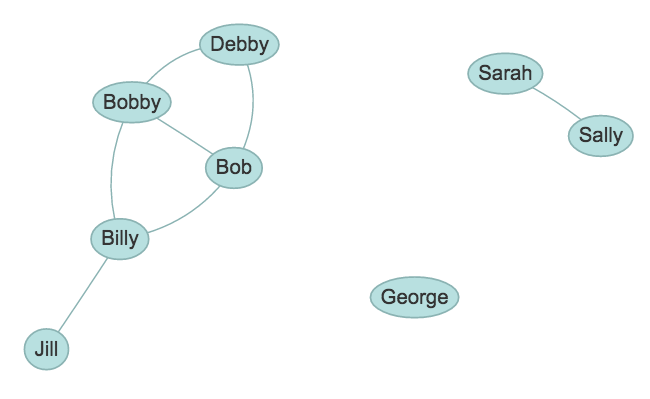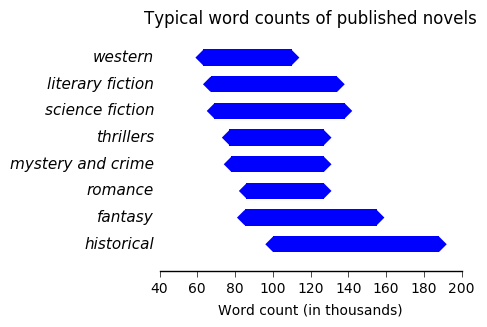How to Choose Names for the Characters in Your Story
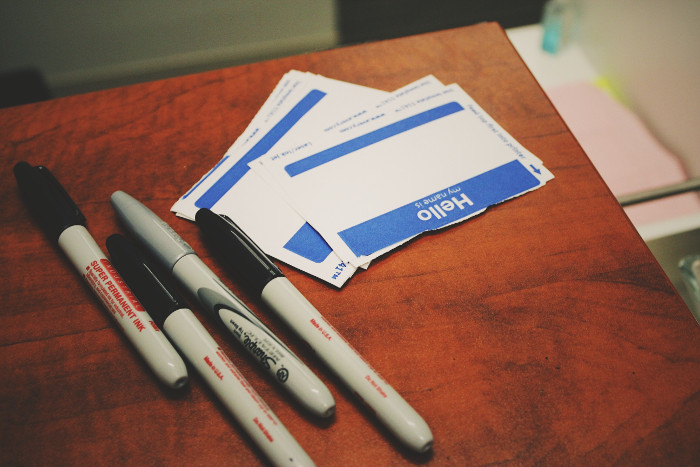
Photo by Jon Tyson on Unsplash
Do you decide what to call your characters when you first dream them up, making the name an integral part of each character? Or do you go to the other extreme, and simply give them all distinct nicknames or initials until you've finished your first draft?
Have you ever felt that gut-wrenching reluctance when you realise, after months or years of living with a character, that you're going to have to change their name?
Here are six factors to bear in mind when making your choice.
Think twice before using names that are difficult to pronounce
How many of us had read several Harry Potter books before realising how to pronounce the name "Hermione"? I know I thought it was Hermy-own until I was halfway through the series.
Unique and unusual character names are fun to use, but names that are difficult to pronounce can be off-putting for your readers. Consider how annoying it is to stumble over a name's pronunciation every time that character appears.
Try to stick to names that most readers will know how to pronounce.
If you're inventing your own names for a fantasy world, this still applies. Think of the names Tolkien used: Eowyn, Aragorn, Faramir, Bilbo. These are very clearly not of our world, and yet they all look natural and are easy to pronounce. They sound like real names, unlike Xzbtyh'l or Hfedjpkzz-z.
Take your story's time period into account
The popularity of given names varies greatly over time. Sometimes they also undergo usage shifts. For example, many names that were traditionally used for boys are now most often given to baby girls.
For historical novels, this can be a dangerous source of anachronisms. Stephanie may sound like a great name for your Victorian-era adventuress, but actually it didn't become popular until the 1960s.
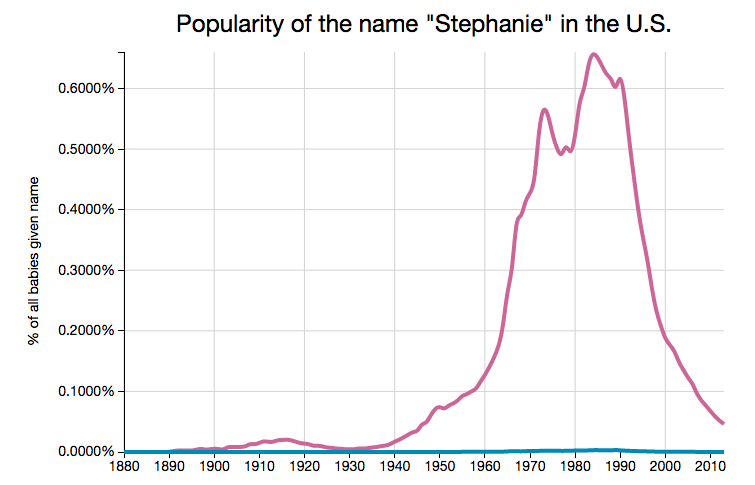
From http://rhiever.github.io/baby-name-explorer/
The era associated with your characters' names also has an impact on their backstory and how the reader perceives them. If your millennial New York journalist is called Wilbur, a name that fell out of popularity in the 1940s, there's a story behind it. Does he have old-fashioned parents? How did that affect his childhood and his personality? Or maybe he's named after a family member? Was that person a role model for him? If you don't want to imply any of that, then consider a more modern name.
You can find charts of name popularity changes over time at these useful addresses:
US statistics
Statistics for England and Wales
Statistics for Scotland
Statistics for France
For other countries, try the search term "baby names trends + COUNTRY"
Consider all possible word associations
Star Trek's creator Gene Rodenberry, who himself had a fairly "soft" name, famously chose "hard" names for most of his heroes: Kirk, Spock, McCoy, Riker, Picard, all containing a hard "k" sound.
As for Dickens' characters Mr. Pumblechook, Mr Bumble or Mr. Pecksniff, what impression have you formed of their personalities, without knowing anything about them besides their names?
The sound and spelling of a name evoke in the reader conscious or unconscious associations that influence how they perceive the character.
JK Rowling used this to great effect in the Harry Potter series. Some associations are obvious. The werewolf Remus Lupin's first name, for instance, is an obvious reference to the twin brother suckled by a wolf in Roman legend, while "lupine" simply means "wolflike".
Others associations are more subtle. Umbridge recalls the word "umbrage", while Severus Snape has similarly negative associations with "severe", "sever", "snipe", "snip", "snap" and "snippety". On the other hand, Peter Pettigrew doesn't sound very dangerous, and you know Professor Grubbly-Plank could not possibly be a Death Eater.
Be careful not to go overboard with this. Modern readers may be less willing to accept names like Miss Snevellicci or Mr Wopsle from you than from Dickens.
The technique also relies on your readers having the same vocabulary and cultural background as you. For example, Dickens' Mr Merdle doesn't mean anything to the reader who isn't familiar with the French word merde.
Check that the name's social connotations match the character
Some names are strongly associated with a particular social class, ethnic background, or cultural identity.
For example, 90% of Americans with the surname Washington identify as Black. Meanwhile, English Dukes are unlikely to be called Chuck or Mason. They're more likely to go by George, Frederick or Arthur. Alistair and Andrew are associated with Scotland.
Consider the implications of famous namesakes
Google your character names before you make a definitive choice. There's nothing worse than coming up with a great name for your mild-mannered, kind-hearted hero, and then discovering it's also the name of an infamous serial killer.
Unless you invent your own names, all your characters will share at least their first or last name with existing fictional and real-life people. Jason will remind some readers of the fictional CIA agent Jason Bourne. Others will think of the Greek mythology hero who embarked on a quest for the Golden Fleece. Only you can decide if the association is likely to be a problem for your story or not.
Choose distinct names to avoid reader confusion
After going through the above checklist, you should have a set of character names you're potentially happy with. The final step is to make sure they work collectively, not just individually. Make an exhaustive list of all named characters, no matter how minor, and look for resemblances.
Two characters with similar names will cause problems for readers, either because they sound the same, or because they look the same on the page.
Bear in mind that readers interact with your story in many different ways. Some readers subvocalize the words they read: in other words, they have an inner voice. Others concentrate mainly on the shape of the words on the page: where do the letters drop below or rise above the central line? Still others only read the start of each word, ignoring the final letters. (See this study on word recognition, for example.)
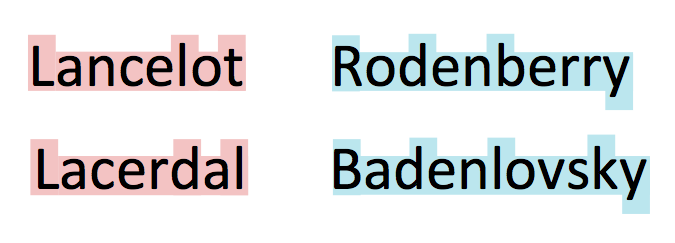
Remember, too, that your story may one day be turned into an audiobook, or that a reader may use automatic text-to-speech software to listen to it.
George and Shorsha sound very similar, even if they have completely different spelling. Meanwhile, Abigail and Adayod have exactly the same shape on the page.
A useful technique is to list all the letters of the alphabet, then add all character names to the list based on their initial letter. Having several main or secondary characters starting with the same letter is not a good idea.
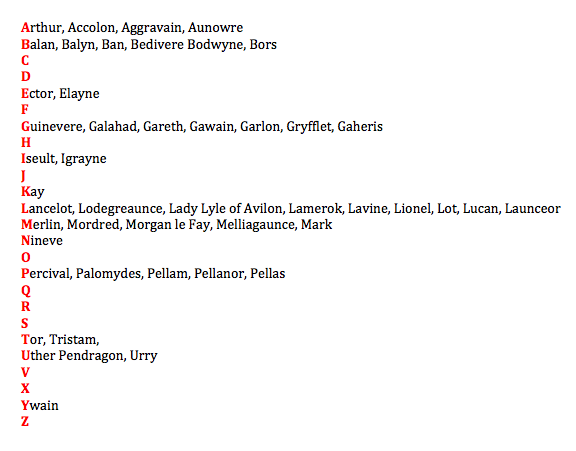
You can also use the ZetaProse People and Places tool to detect automatically all character names in your story and build a graph showing their similarity.
